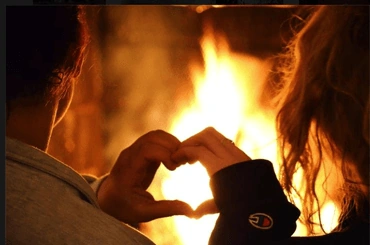Apocalypse Explained # 531
531. Woe, woe, woe, to them that dwell on the earth by reason of the other voices of the trumpet of the three angels which are about to sound.- That this signifies grievous lamentation over the changes of the state of the church at its end, on account of aversion from good and truth, and thence damnation, is evident from the signification of woe, which denotes lamentation over aversion from good and truth, and consequent damnation; and from its being said three times, which denotes grievous lamentation, concerning which we shall speak presently; from the signification of them that dwell on the earth, as denoting those who are of the church, the earth denoting the church, as may be seen above (n. 29, 304, 417); and from the signification of the voices of the trumpet of the three angels which are about to sound, as denoting the changes of the state of the church; for by the angels sounding the trumpets, are signified changes from influx out of heaven; see above (n. 502). That three signifies what is complete even to the end, will be seen in the following article. It is therefore evident that these words, "Woe, woe, woe, to those that dwell on the earth by reason of the other voices of the trumpet of the three angels which are about to sound," signify grievous lamentation over the changes of the state of the church at its end, on account of aversion from good and truth, and consequent damnation.
[2] That woe signifies lamentation over calamity, danger, misery, destruction, and so forth, is clear from the passages in the Word where it occurs; but here it signifies lamentation over aversion from good and truth, and consequent damnation, because this is the subject treated of in that which follows. And because aversion from good and truth becomes successively more grievous in the church, even unto its end, therefore it is three times named, to denote every successive increase of the grievousness of evil. This is evident from the following passages, where it is said,
"One woe is past; and behold, there come two woes more hereafter" (9:12).
And afterwards:
"The second woe is past; and behold, the third woe cometh quickly" (11:14).
That woe in the Word signifies lamentation over various accidents, especially over the evils which devastate the church, is evident from various passages therein; as in Matthew:
"Woe unto you, scribes and pharisees, hypocrites!" (23:13, 14, 15, 16, 23, 25, 27, 29).
And in Luke:
"Woe unto that man by whom the Son of man is betrayed!" (22:22).
Again, in the same:
"Woe unto him, through whom offences come!" (17:1).
And in Isaiah:
"Woe unto them that join house to house" (5:8).
"Woe unto them that rise up early in the morning, that they may follow strong drink" (5:11).
"Woe unto them that draw iniquity" (5:18).
"Woe unto them that call evil good, and good evil" (5:20).
"Woe unto them that are wise in their own eyes" (5:21).
"Woe unto them that are mighty to drink wine (vinum)" (5:22).
See also Isaiah, chap. 3:11; 10:1; 17:12; 18:1; 29:1, 15; 30:1; 31:1; 33:1; 45:9, 10, etc.; Jeremiah 22:13; Ezekiel 13:3; Apoc. 18:16, 19.
Heart

The heart means love. A good heart means love to the Lord and to the neighbor, while a hard or stony heart means the love of self or the world -- riches and things. When the psalmist asks the Lord to search his heart, he wants the Lord to see what it is that he loves. And we are what we love. What we eat may form our earthly body, but it's only temporary, what we love forms our spiritual body, beautiful or ugly as we have chosen. It's interesting to note that the first multi-cellular motion of our embryo is the pulsating that starts in a twist of blood vessel that is to become our heart, and the last motion of our natural body is our heartbeat. It is there for all of our natural life. And of course there is a beating heart in our spiritual bodies when we come to put them on.






